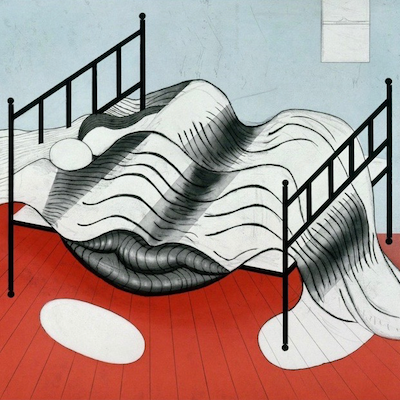
Details
Artist
Styles
Dimensions: Image size (3x): 32.5 x 28.0 cm , Paper size: 47.0 x 103.5 cm , Frame size: 77.0 x 134.0 cm , - Signature & Edition: Signed in pencil , Numbered 110/150 in pencil , Published by Éditions de la Différence, Paris , Printed by Arts litho, Paris - Catalogue raisonné: Bruno Sabatier no. 15 , Alexandre Tacou no. 11
Trois études pour un autoportrait, 1981
form
Medium
Size
47 x 103.5 cm
- Inches
- Centimeters
Edition
Price
Details
Artist
Styles
Dimensions: Image size (3x): 32.5 x 28.0 cm , Paper size: 47.0 x 103.5 cm , Frame size: 77.0 x 134.0 cm , - Signature & Edition: Signed in pencil , Numbered 110/150 in pencil , Published by Éditions de la Différence, Paris , Printed by Arts litho, Paris - Catalogue raisonné: Bruno Sabatier no. 15 , Alexandre Tacou no. 11
- Recently Added
- Price (low-high )
- Price (high-low )
- Year (low-high )
- Year (high-low )
Francis Bacon
Study For Portrait Of Pope Innocent X After Velasquez, 1989
Limited Edition Print
Lithograph
EUR 60,000 - 70,000
Francis Bacon
Three Studies For A Portrait Of John Edwards, 1980
Limited Edition Print
Lithograph
EUR 57,000 - 70,000
Francis Bacon
Triptych, 1974-1977
Limited Edition Print
Etching And Aquatint
Currently Not Available
What is Postmodernism?
Postmodernism is an art movement that emerged as a reaction against authority and traditional boundaries, seeking to blur the lines between art and everyday life. It aimed to bridge the gap between the cultural elite and the general public by embracing eclectic mixtures of earlier conventions and styles. Postmodernist art often challenges established norms and celebrates diversity, irony, and pastiche, making it a movement that reflects the complexities of contemporary culture.
















